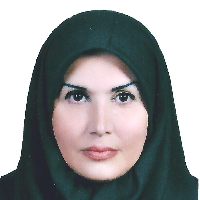Explanation and Evaluation the factors and indicators of the knowledge based cities in the direction of regional development by Entropy Shanon and Topsis combined techniques(Case study: Pardis city)
Knowledge-based urban development is a new form of urban development in the 21st century, which has the potential to bring economic development to contemporary cities. This research, with the aim of achieving a proposed local framework for knowledge-based urban development, explains and evaluates the components and indicators of the knowledge-based city in Pardis city. In order to achieve this goal, the desired components and indicators were determined using documentary studies and theoretical and experimental bases, and a questionnaire with 65 items was distributed among the decision-making group consisting of 40 members of the target group using the Delphi method. In order to extract the best indicators, z-score method was used and based on the Likert spectrum and entropy technique, the weight of components and indicators was calculated and for their prioritization, Topsis technique was used. becameIn the following, the research questions were answered, which are the criteria and indicators necessary to transform Pardis city into a knowledge-based city and what will be their priority to achieve a successful knowledge-based city. In fact, six social , economic, managerial, perceptual, spatial organization and urban infrastructure components were defined as the proposed components for knowledge-based urban development and their related indicators. The results of the research show that the economic component with a coefficient of 0.7878 is in the first place, urban infrastructure is in the second place with a coefficient of 0.5717 and management is in the third place with a coefficient of 0.4489 in terms of importance in Pardis city and in line with each of The mentioned components, the indicators related to them are prioritized and the necessary suggestions are made to transform Pardis city into a knowledge-based city with The goal of regional development was presented
-
Examining the Impact of Seasonal Changes on Embodied Perception Capabilities and Behavior: A Case Study of Darakeh, Tehran
Saeed Sharifkazemi, *, Maryam Ghalambor Dezfuly
Bagh-e Nazar, May 2025 -
Traditional Neighborhood Development (TND) Based On Local Schools of Urban Planning Using Two Analytical Methods, TOPSIS and Multiple Regression (Case Study: Tabriz School of Urban Planning)
Morteza Lotfipour Siahkalroudi, Zahrasadat Saeideh Zarabadi*, Mostafa Behzadfar,
Journal of Life Space,



